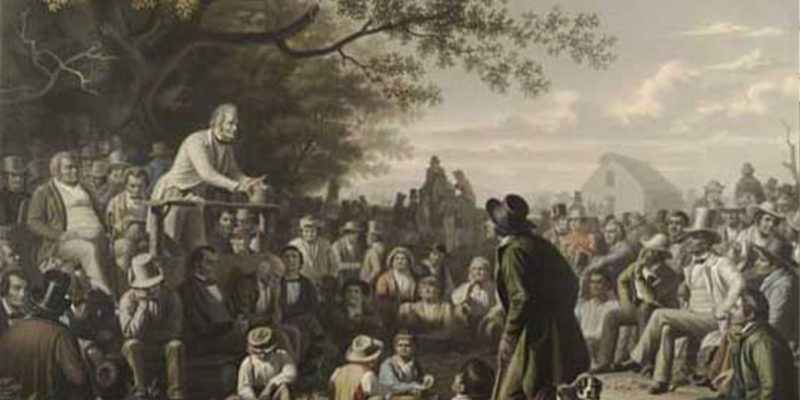Andrew Farrant and Edward McPhail note that in 2010 under Obama’s administration the popularity of Hayek’s Road to Serfdom dramatically spiked (Farrant and McPhail 2010). As a result of this increased level of attention, the University of Chicago Press had to order an additional 100,000 copies (Farrant and McPhail2010, 79). Despite the renewed popularity of Hayekian liberalism, I use this essay to raise a few doubts about its adequacy in the twenty-first century. In this paper, I argue that Hayek’s theory, with its emphasis on the rule of law, should not serve as a reference point because it ignores the oppression experienced by the less privileged and fails to provide a satisfactory definition of freedom. I unfold this thesis in three stages.
I begin my argument by noting how the government under the rule of law is not morally neutral as Hayek claims, but, on the contrary, takes a stance by ignoring the harms that minorities have experienced in the past. Secondly, I argue that by being concerned only with the rules of the system and not its outcomes (sometimes referred to as procedural liberalism), Hayekian liberalism underplays the way in which capitalists exploit the working class. Lastly, I will build on the work of Yildiz Silier to argue that prior arguments notwithstanding, Hayek’s liberalism should still not be promoted, because of its distorted definition of freedom, which fails to recognize that one’s liberty can be restricted by factors that are not reducible to individual behavior.
The Rule of Law and Minorities
When Hayek writes about the rule of law, he does not have in mind any particular laws constituted by legislators. The rule of law does not consist of anyone’s policies. Instead, it constitutes what Hayek calls a meta-legal principle; in other words, the rule of law should be understood as an ideal that is objective and unchangeable. Such rules, says Hayek, must be concerned with protecting the liberty of the individual. As he puts it, “the conception of freedom under the law […] rests on the contention that when we obey laws, in the sense of general abstract rules laid down irrespective of their application to us, we are not subject to another man’s will and are therefore free” (Hayek 1960, 153). In other words, to secure freedom, Hayek’s liberalism says that individuals should be left alone to make their own decisions by following the rules that apply to all of them equally. The rules do not give us guides to what we ought to do, but instead form constraints on the permissible manifestations of the actions we choose.
In practice, Hayek’s belief in individual freedom manifests itself primarily as skepticism towards governmental intervention. For example, he argues that the government has no right in determining what commodities can be sold or for what price they ought to be sold (Hayek 1960). Such restriction on government action might result in, or enshrine existing, inequalities. However, Hayek argues that most inequalities are justified, assuming that they result from the free actions of individuals—by which he means primarily individual agents interacting in markets. An intervention aiming at particular individuals is, according to Hayek, a characteristic of totalitarian regimes, that attempt to weaponize the law (Hayek 1944). Such actions are unacceptable in Hayek’s liberalism because they result from rules designed to be partial, rather than applied neutrally to all citizens.
Finally, Hayek sees the rule of law as restricting the actions of the government in such a way so that they are predictable. For free individuals to make reasonable choices, they cannot live under the impression that the government may at any moment make capricious changes in public policy. Put differently, by intervening in the free market the government changes the rules of the game, so to speak, thereby making it difficult for people to make rational plans (especially economic decisions) in the most efficient manner possible. Intervention breeds inefficiency. In short, Hayek’s idea of rule of law liberalism treats persons as autonomous entities and does not interfere with their freedom.
Sometimes it is claimed that Hayek’s philosophy is not driven by ignorance but rather, skepticism towards a central authority attempting to shape policy on the basis of morality. Hayek opposes government intervention since for the government to fight for the rights of a certain group means to become a “moral institution” (Hayek 2001); the government under to rule of law, however, ought to be “amoral” (Hayek 2001) because “planning necessarily involves deliberate discrimination between particular needs of different people” (Hayek 2001, 82). Simply put, by advocating for one group’s interests the government will necessarily have to act against the interest of some other group. Hayek’s liberalism does not attempt to choose which group deserves certain goods and which does not since such a decision would be purely arbitrary and not based on a desert. Thus, the rule of law aims to prevent the government from taking any moral position beyond barebones proceduralism.
The problem with this line of reasoning is that Hayek’s rejection of a “moral” government is only illusory. I claim that by not taking an action the government does not remain amoral. Indeed, in doing so within a given historical context, like that of the U.S. it makes substantive ethical commitments, namely that minorities do not deserve any reparations. Consequently, rather than allowing the government to support minority groups, the government in Hayek’s society treats them as individuals fully responsible for their fate. More progressive theorists have pointed out that such reasoning implies “political solipsism” that is, “the [idea] that human individuals are essentially self-sufficient entities” (Jaggar 1983, 40; see also McKinnon, 1989; Young, 1990) In other words, what liberal philosophy fails to recognize is that the person’s achievement and success are (at least in some part) due to the social setting in which they find themselves; likewise, socio-economic inequalities are not just a result of individuals making their own independent choices. For example, my success in school is not merely my own individual achievement. To be the effective student that I am, I had to be shaped by various educators and instructors throughout my life. If I had been educated by different teachers in a completely different social context, the student, and ultimately more generally the person, who I am may be significantly different. The results of this sharply individualist (or what is sometimes referred to as atomistic) conception of human beings are not merely theoretical but lead to practical consequences.
According to the Equality and Human Rights Commission (2020), in 2020 the unemployment rate for people of color was 12.9 % higher than for White people. Moreover, Black workers with degrees earned about 23% less than White workers with the same education status. When confronted with such data, liberals uphold that it is just an outcome of individual choice. They ignore that the socio-economic position of people of color should be understood through the lenses of the history of racial segregation and the fact that racial minorities only recently got access to education, employment, healthcare, etc. Simply accepting rule of law liberalism is, therefore, not to take a position somehow outside of morality. On the contrary, a person who accepts Hayek’s liberalism clearly takes a moral stance by first rejecting the serious harm experienced by minorities and second asking the oppressed ones to compete on unequal terms with the more privileged members of society.
The Rule of Law and its Ignorance of Exploitation
Secondly, Hayek’s liberalism should not be defended since by implying that the government should be concerned only with the rules and not the outcomes of economic transactions, it ignores the problem of exploitation that the working class faces on an everyday basis. As mentioned above, according to Hayek’s liberalism the government cannot direct the means of production towards “particular ends” (Hayek 2001). Rather than paying attention to outcomes, the government should be concerned only with “the conditions under which the available resources may be used” (Hayek 2001, 86).
To put this in the language of contemporary moral philosophy, Hayek’s rule of law rejects moral consequentialism in favor of some form of moral deontology—i.e., actions are themselves wrong or right regardless of their consequences. If person A voluntarily agrees to work for person B, so the argument goes, then the government has no right to intervene. That is considered a free and fair decision made between autonomous individuals, so even if the outcome is disastrous for one party, the government cannot justifiably intervene. However, when one is concerned only with the procedural validity of the transaction and not at all concerned with its consequences, then one also underplays the exploitation that is inherently part of that system. The philosophic argument for the above assertion was perhaps best articulated by the 19th-century German economist, social theorist, and philosopher, Karl Marx.
He pointed out that if a worker is hired for, for instance, $16 an hour, it means that for every hour they work, they also create a new value, that is, surplus value since it goes beyond the cost of production (Marx, 1998, 158 – 177). The surplus value obviously does not belong to the worker but becomes acquired by the capitalist who may use it to reinvest in the machinery (as some pro-capitalist thinkers would argue) or keep it for themselves. If not for the surplus value, the capitalist would have no rational reason to hire the worker at all. Marx’s argument is essentially that we can think of a worker’s day as divided into two stages. In the first stage, the workers produce that value necessary to cover their own wages, whereas in the second stage, the worker works to bring profit to the capitalist. Marx concludes that during the second part of the day the worker works essentially for free (Zwolinski and Wertheimer 2016; see also Marx 1847).
In Hayek’s rule of law liberalism, the government has no legitimate claim to intervene in the transaction between employers and employees since both sides voluntarily agree to the described above transaction in which one side is exploited. ‘Voluntarily’ here means for “one’s own purpose” and not because of someone else’s will (Hayek, 1960). If a such voluntary transaction is not itself morally wrong then its outcomes, namely, the exploitation of the worker can be ignored. I sustain that insofar as we think that workers should be compensated for all the work they do, rather than exploited, Hayek’s liberalism is problematic. If the theory is concerned only with the actions of capitalists, that is, with whether they follow the rules, but refuse to investigate the harmful consequences of such actions, then it seems clear that such theory is not adequate to address today’s capitalist system and its problems.
The Rule of Law and its Flawed Definition of Freedom
Thirdly, I think that the rule of law should be of interest to us only as a historical artifact rather than an active doctrine because of its parochial definition of freedom. Hayek’s liberalism understands freedom only in a negative sense (Berlin, 2017), i.e., as the freedom to be left alone from external intrusion on one’s activity,[1]and as independent of one’s economic status. As he puts it, individuals are only free when they “are not subject to another man’s will” (Hayek 1960, 153). In other words, one is free when one is not subject to the coercion of another party. Note that this understanding of freedom pays no regard to one’s class position.
As Hayek remarks in the Constitution of Liberty, “though freedom and wealth are both good things […] they still remain different. […] The courtier living in the lap of luxury but at the beck and call of his prince may be much less free than a poor peasant or artisan, less able to live his own life and to choose his own opportunities for usefulness” (Hayek 2011, 68). The reason that a peasant might be freer from a courtier is precisely the lack of restriction and coercion from another subject, in this case, a prince. The courtier enjoys a way more luxurious life; however, he is not free because he is subject to the whims of his prince. The peasant, on the other hand, might be less wealthy but is not directly subject to the will of another person. Hence, Hayek concludes that the right understanding of freedom indicates that one’s liberty is independent of economic status.
But this way of thinking about freedom obscures how one’s class status actually works to constrain one’s freedom. As Yildiz Silier (2005) explains “self-determination” (Hayek’s negative freedom) is just one aspect of true human freedom. What must also be considered, Silier argues, is “the power to achieve self-determination” (Silier 2015). In other words, one must have the actual means and beings to make use of the fact that one is not subject to the will of another. So, it might be true that the peasant is not directly subject to the whims of a prince, like the courtier, but they are subject to the need to pay their bills and satisfy a whole host of external needs. Economic scarcity, or worse deprivation, makes the apparent freedom they have much more circumscribed. Hence, as Silier notes, Hayek’s example fails since the courtier has freely chosen their lifestyle; if they wish they can quit their job and become free in the same sense as the peasant.
Hayek struggles to account for the way that one’s economic status can alter one’s level of freedom because he only recognized being subject to the will of other specific individuals as a restriction on freedom. Hence, being subject to things like the market or market logic in an abstract sense does not constitute for him any restrictions on freedom. Yet, as a matter of lived experience, we often find our freedom constrained by both. One’s freedom is evidently (and often) limited by socio-economic factors, for example, poverty in which case lack of restriction from other individuals becomes meaningless. To use Silier’s example, both the poor and the rich have a right to hire a lawyer; however, if the poor do not have money to pay for a lawyer, then their right to have one becomes meaningless (Silier 2015). Thus, the conception of freedom upon which the rule of law is predicated upon is limited. To be helpful, it needs to be integrated with other conceptions of freedom that do more to recognize the way that social processes, and not just individual actions and behaviors, can limit one’s freedom.
Conclusion
This paper has offered three critiques of Hayek’s rule of law liberalism. Taken together, they show that his theory should not be invoked in the twenty-first century. First, the rule of law fails to take an amoral position that it aims to achieve since advocating for the free-market economy and minimal government intervention represent a very clear ethical position that stands in opposition to the demand of the minorities. Second, being concerned only with the rules of the game but not its result, Hayek ignores the exploitation of those who do not own the means of production. Finally, I argued that Hayek’s liberalism operates with an insufficient definition of freedom which ignores socio-economic factors that can also serve as a form of coercion. Hayek’s rule of law liberalism is an important aspect of any free society. However, its reliance on pure proceduralism, rather than being sensitive to unfair differential outcomes, suggests that it alone cannot be the theoretical underpinning of contemporary democratic societies
Works Cited
Equality and Human Rights Commission. 2020. “Race Report Statistics”. Equality And Human
Rights Commission. https://www.equalityhumanrights.com/en/race-report-statistics.
Berlin, I. (2017). Two concepts of liberty. In The liberty reader (pp. 33-57). Routledge.
Farrant, Andrew, and Edward McPhail. 2010. “Hayek’s New Popularity: The False Claim that
He was Right”. Challenge 53 (5): 78-91. doi:10.2753/0577-5132530506.
Hayek, Friedrich A. 1944. The Road To Serfdom: Chapter 6 Planning And The Rule Of Law. Ebook. Chicago: University of Chicago Press. https://www.aspeninstitute.org/wpcontent/uploads/files/content/docs/HAYEK_ROAD_TO_SERFDOM_CH._6_(AS08).PDF.
Hayek, Friedrich A. von. 2001. The Road to Serfdom. Abingdon: Routledge.
Hayek, Friedrich A. von.. 1960. The Constitution of Liberty. London: Routledge
Hayek, Friedrich A. von. 2011. The Constitution of Liberty. Chicago: University of Chicago Press.
Jaggar, Alison M. 1983. Feminist Politics and Human Nature. Rowman & Littlefield.
MacKinnon, C. A. (1989). Toward a Feminist Theory of the State. Harvard University Press.
Marx, Karl. 1847. Wage Labour and Capital. New York: New York Labour News Company.
Marx, K., & Engels, F. (1998). Marx & Engels Collected Works Vol 37: Karl Marx Capital: Volume 3.
Silier, Yildiz. 2015. Freedom: Negative and Positive Conceptions. Routledge.
Young, I. M. (1990). Justice and the Politics of Difference. Princeton University Press.
Zwolinski, Matt, and Alan Wertheimer. 2017. “Exploitation”. Stanford Encyclopedia Of Philosophy. https://plato.stanford.edu/entries/exp\
[1] It is also worth mentioning that the Rule of Law assures only that one is free from the restrictions and force of some third party. It is not, however, concerned with freedom in a positive sense; for example, freedom to free health care or good quality higher education.




 Compass is an online journal that provides a space for the work of talented undergraduates who have original and well-articulated insights on important ideas and issues relating to American democracy understood in the broad contexts of political philosophy, history, literature, economics, and culture.
Compass is an online journal that provides a space for the work of talented undergraduates who have original and well-articulated insights on important ideas and issues relating to American democracy understood in the broad contexts of political philosophy, history, literature, economics, and culture.